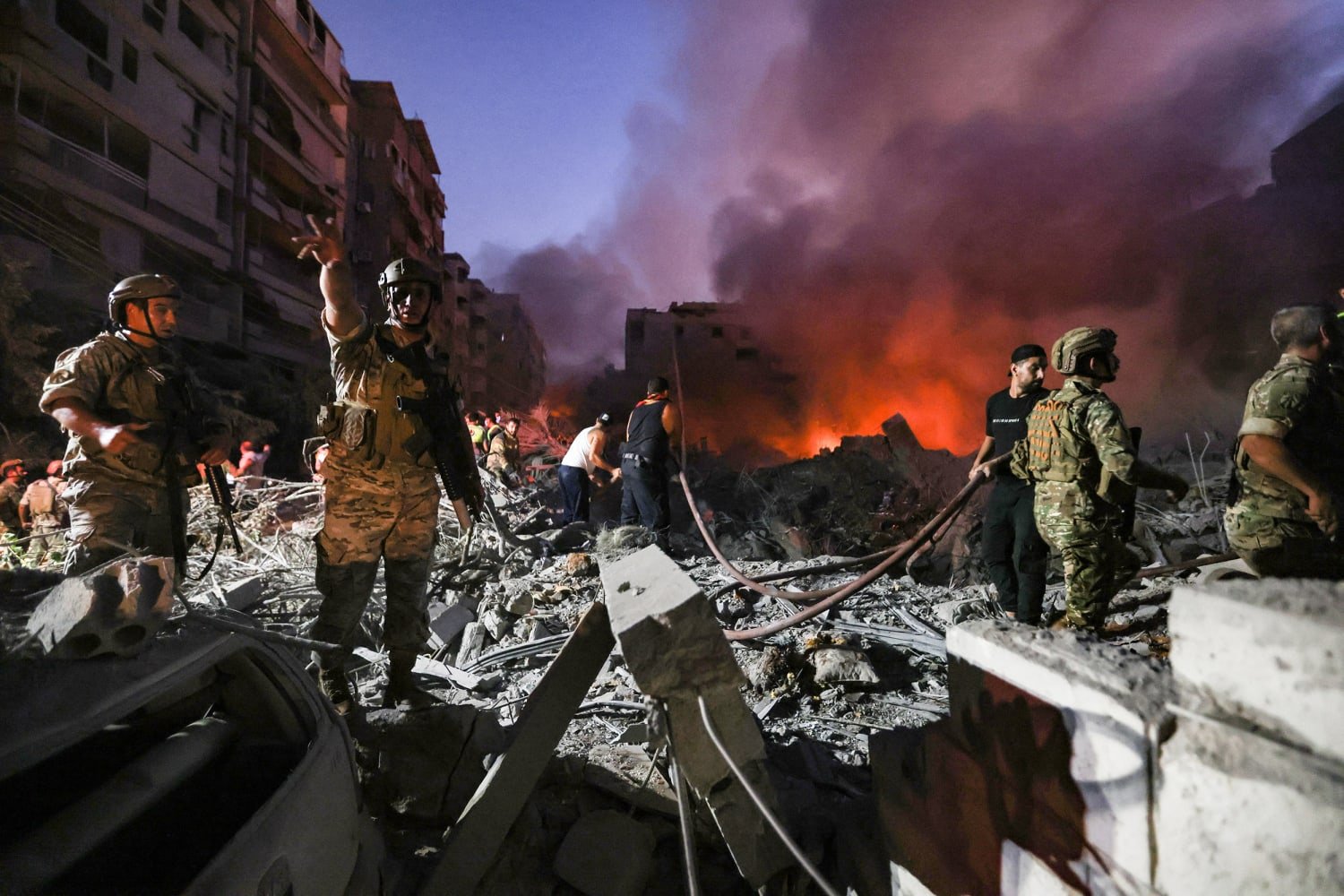The Temporary peace before a violent upheaval: A Brief look into Beirut
At the times going before the frightening Israeli strikes on Beirut, the city showed a demeanor of quiet business as usual that gave a false representation of the disarray to come. Occupants approached their everyday schedules, taking part in exercises that highlighted the dynamic life throbbing through the roads. The early morning sun washed the city in a warm gleam, enlightening the restricted rear entryways and clamoring markets where merchants were setting up their slows down, anxious to welcome the day’s benefactors.
As individuals arranged for their ordinary day, the city reverberated with an orchestra of sounds — the clack of dishes from neighboring bistros, the giggling of kids playing in the roads, and the occasional blaring of vehicles as drivers explored the morning traffic. Local people assembled at bistros, trading bright exchange over cups major areas of strength for of espresso, while retailers shouted to bystanders, welcoming them to investigate their merchandise. These regular scenes mirrored a local area drenched in its daily schedule, distant from the looming disturbance.
Witnesses described snapshots of quietness, for example, families getting a charge out of picnics in parks, where the fragrance of sprouting jasmine consumed the space. The energetic paintings painted on the walls said a lot about the city’s rich culture and history, exhibiting workmanship that reverberated with the aggregate character of its kin. Youngsters played football in the roads, their giggling reverberating against the background of the Mediterranean, representing trust and blamelessness in the midst of the scenery of intricacy that characterized life in Beirut.
This serene presence would before long be obscured by viciousness, breaking the quiet that had immediately wrapped the city. The unmistakable difference between the serenity of these minutes and the savagery of what was to follow makes the memories of Beirut’s occupants even more strong, showing both the delicacy of harmony and the getting through soul of its kin.
A Frantic Second: Seeing the Strikes
On the morning of July 13, 2006, as the sun crawled out of sight, the air in Beirut appeared to be standard. The serenity that encompassed the city gave a false representation of the tumult that was going to eject. Inhabitants approached their day to day schedules, ignorant that the tranquility would before long give way to confusion. Unexpectedly, the primary uproarious thunder of an airplane pierced the quiet, sending chills down the spines of the individuals who heard it. The sound was not only a clamor; it was a sign of the obliteration that would follow.
Witnesses related feeling a blend of shock and incredulity as they enlisted the airplane above. “It seemed like a cargo train,” one neighborhood occupant depicted. As the planes took off over, a discernible pressure consumed the space, wrapping the city and touching off a need to get going across neighborhoods. The second that came next was one set apart by fear; the ground shuddered underneath the power of the blasts, and the skies obscured with smoke and trash. The differentiation from serenity to strife was bumping, leaving numerous uncertain of how to respond.
Individuals hurried to their windows, driven by interest, just to be met with a scene they could scarcely fathom. The stunning cityscape they had known changed into a terrible scene, loaded up with tufts of smoke and the hints of obliteration. Dread and disarray grasped the hearts of numerous as they saw structures falling, fires seething, and the yells of those in trouble ringing through the air. It was a frantic second, where the natural magnificence of Beirut was eclipsed by the crude humankind of frenzy and distress.
As the strikes proceeded, the personal unrest increased. The mistrust among witnesses was discernible; how should such annihilation happen in their cherished city? At these times of disturbance, the human expense of contention turned out to be horrendously apparent, carved into the recollections of the people who made due to recount their accounts. The encounters of Beirut’s occupants during the strikes act as a grave wake up call of the delicacy of harmony and the getting through effect of viciousness on networks.
Quick Repercussions: The Effect of the Blasts
The Israeli strikes on Beirut brought about obliterating outcomes that severely impacted the city. The quick result uncovered a scene filled with obliteration — structures, some decreased to rubble, others left fundamentally compromised. Roads that once clamored with life were changed into scenes of disarray, flung with trash and tossed individual effects, filling in as nerve racking tokens of the new savagery. Witnesses portrayed the air as strange, where the reverberations of the blasts resounded through the city long after the last impact had blurred.
The stunning number of losses is a difficult impression of the lamentable results of the strikes. Clinics immediately became overpowered with harmed regular citizens in bad shape. A large number of these people were gotten suddenly in the crossfire, while others experienced actual injuries as well as mental injury. The sheer number of casualties left families lamenting and networks crushed. Individual records relate the pain of lost lives and the endeavors of friends and family quickly looking for the people who had disappeared in the midst of the tumult.
The profound cost for the local area couldn’t possibly be more significant. Survivors related their encounters with a blend of mistrust and loathsomeness, attempting to understand the size of obliteration. Inhabitants shared impactful accounts of neighbors who had been killed or harmed, highlighting the profound associations that tight spot networks together. These accounts frequently uncover the versatility and fortitude inside families and neighborhoods as they wrestle with their misfortune. Encouraging groups of people arose very quickly as individuals looked to comfort each other, by and large grieving while likewise starting to evaluate the subsequent stages despite such overpowering affliction.
A City in Grieving: Reflections and Versatility
The new Israeli strikes on Beirut have made a permanent imprint on the city, modifying its scene and influencing the existences of its occupants. Witnesses relate nerve racking encounters that disturb the standard rhythms of life, diving the local area into a condition of grieving. Structures that once remained as images of current design presently lay in ruins, and the reverberations of obliteration have changed recognizable roads into tormenting tokens of what used to be. The terrible occasions have set off a significant feeling of weakness among the inhabitants, reshaping view of wellbeing and security. Individuals express a delicacy in regular day to day existence, stressed over the eccentric idea of contention that weaving machines their reality.
Notwithstanding the injury, there are inescapable subjects of flexibility and fortitude that rise up out of the remains. Individuals of Beirut have consistently exhibited a resolute soul, and in the outcome of these disastrous strikes, that constancy radiates through. Nearby associations and local area individuals join together, giving guide to those impacted and assisting with modifying structures, yet additionally the actual structure holding the system together. Thoughtful gestures flourish, from sharing assets to offering daily reassurance, supporting bonds that have been tried at the end of the day fortified by difficulty.
Accounts of trust pervade the city. People express a pledge to remaking their homes, yet in addition their lives. They consider the illustrations gained from such desperate conditions and stress an aggregate craving to manufacture a future set apart by harmony and common consideration. This versatility is meaningful of the Beirut populace’s purpose to defy the difficulties ahead, filling in as a strong demonstration of the human soul. Even with despair, they stand joined together, typifying a message of solidarity and recuperation that reverberates a long ways past their city’s boundaries.

